All this was held to be servile and characteristic of villainage.* I shall have to discuss the question of services and customs again, when I come to the information supplied by manorial documents. It is sufficient for my present purpose to point out that two contradictory views were taken of it during the thirteenth century; 'certain or uncertain?' was the catchword in one case; 'of what kind?' in the other. A good illustration of the unsettled condition of the law is afforded by the case Prior of Ripley v. Thomas Fitz-Adam. According to the Prior, the jurors called to testify as to services and tenures had, while admitting the payment of tallage and merchet, asked leave to take the advice of Robert Lexington, a great authority on the bench, whether a holding encumbered by such customs could be free.
The subject is important, not only because its treatment shows to what extent the whole law of social distinctions was still in a state of fermentation, but also because the classification of tenures according to the nature of customs may afford valuable clues to the origin of legal disabilities in economic and political facts. The plain and formal rule of later law, which is undoubtedly quite fitted to test the main issue as to the power of the lord, is represented in earlier times by a congeries of opinions, each of which had its foundation in some matter of fact. We see here a state of things which on the one hand is very likely to invite an artificial simplification, by an application of some one-sided legal conception of serfdom, while on the other hand it seems to have originated in a mixture and confusion of divers classes of serfs and free men, which shaded off into each other by insensible degrees.
The procedure in trials touching the question of status was decidedly favourable to liberty. To begin with, only one proof was accepted as conclusive against it -- absolute proof that the kinsfolk of the person claimed were villains by descent.* The verdict of a jury was not sufficient to settle the question,* and a man who had been refused an assize in consequence of the defendant pleading villainage in bar had the right notwithstanding such decision to sue for his liberty. When the proof by kinship came on, two limitations were imposed on the party maintaining servitude: women were not admitted to stand as links in the proof because of their frailty and of the greater dignity of a man, and one man was not deemed sufficient to establish the servile condition of the person claimed.* If the defendant in a plea of niefty, or a plaintiff in an action of liberty, could convincingly show that his father or any not too remote ancestor had come to settle on the lord's land as a stranger, his liberty as a descendant was sufficiently proved.*In this way to prove personal villainage one had to prove villainage by birth. Recognition of servile status in a court of record and reference to a deed are quite exceptional.
The coincidence in all these points against the party maintaining servitude is by no means casual; the courts proclaimed their leaning 'in favour of liberty' quite openly, and followed it in many instances besides those just quoted. It was held, for instance, that in defending liberty every means ought to be admitted. The counsel pleading for it sometimes set up two or three pleas against his adversary and declined to narrow his contention, thus transgressing the rules against duplicity of plea 'in favour of liberty.'* In the case of a stranger settling on the land, his liberty was always assumed, and the court declined to construe any uncertainty of condition against him.4When villainage was pleaded in bar against a person out of the power of the lord, the special question was very often examined by a jury from the place where the person excepted to had been lately resident, and not by a jury from the country where he had been born.* This told against the lord, of course, because the jurors might often have very vague notions as to the previous condition of their new fellow-countryman.*It would be impossible to say in what particular cases this partiality of the law is to be taken as a consequence of enlightened and humanitarian views making towards the liberation of the servile class, and in what cases it may be traced to the fact that an original element of freedom had been attracted into the constitution of villainage and was influencing its legal development despite any general theory of a servile character.














